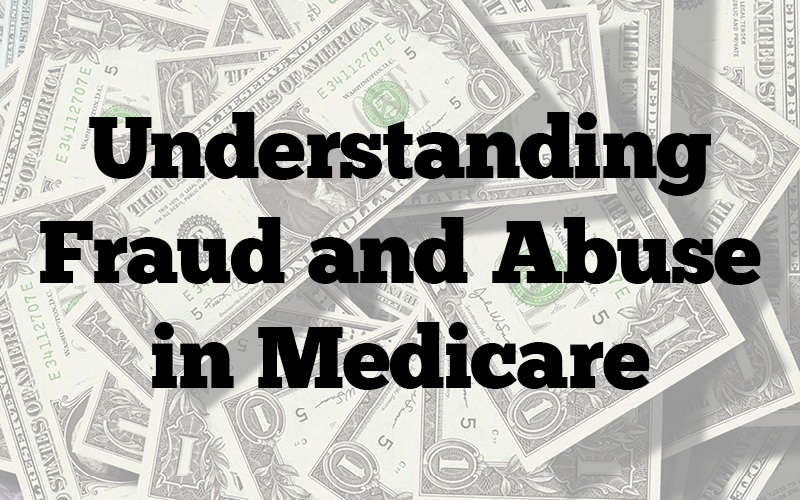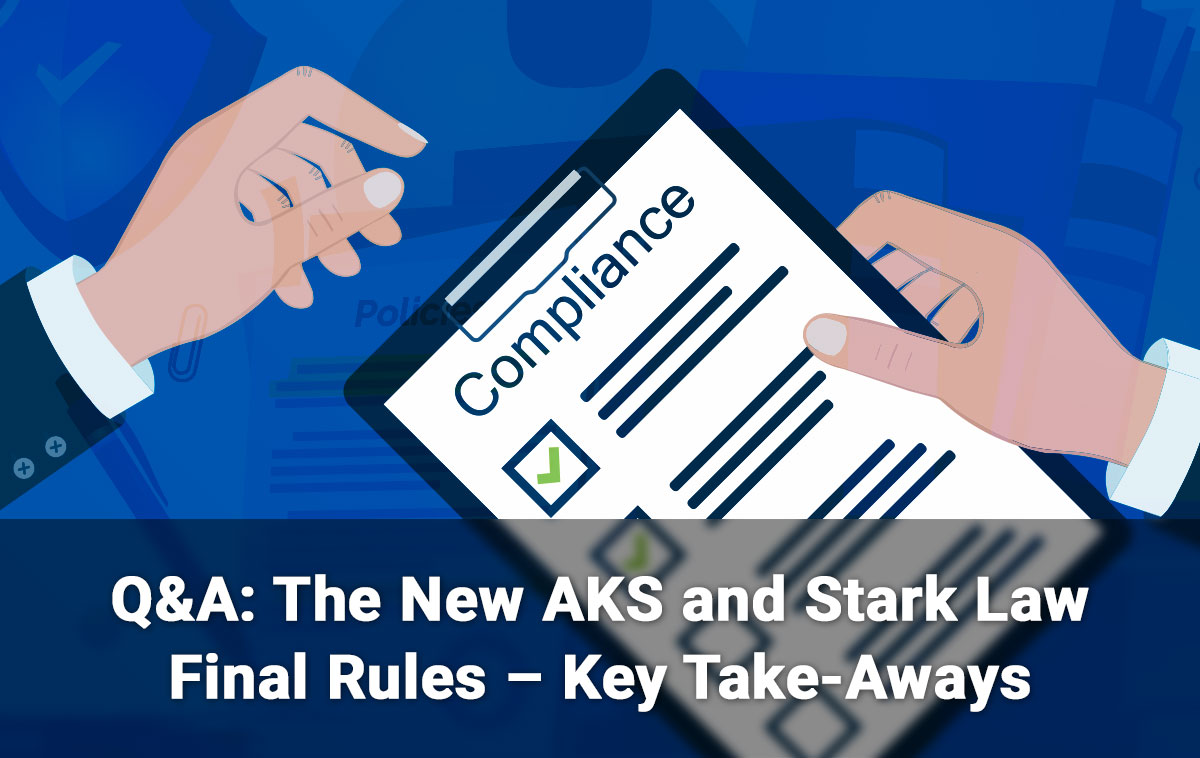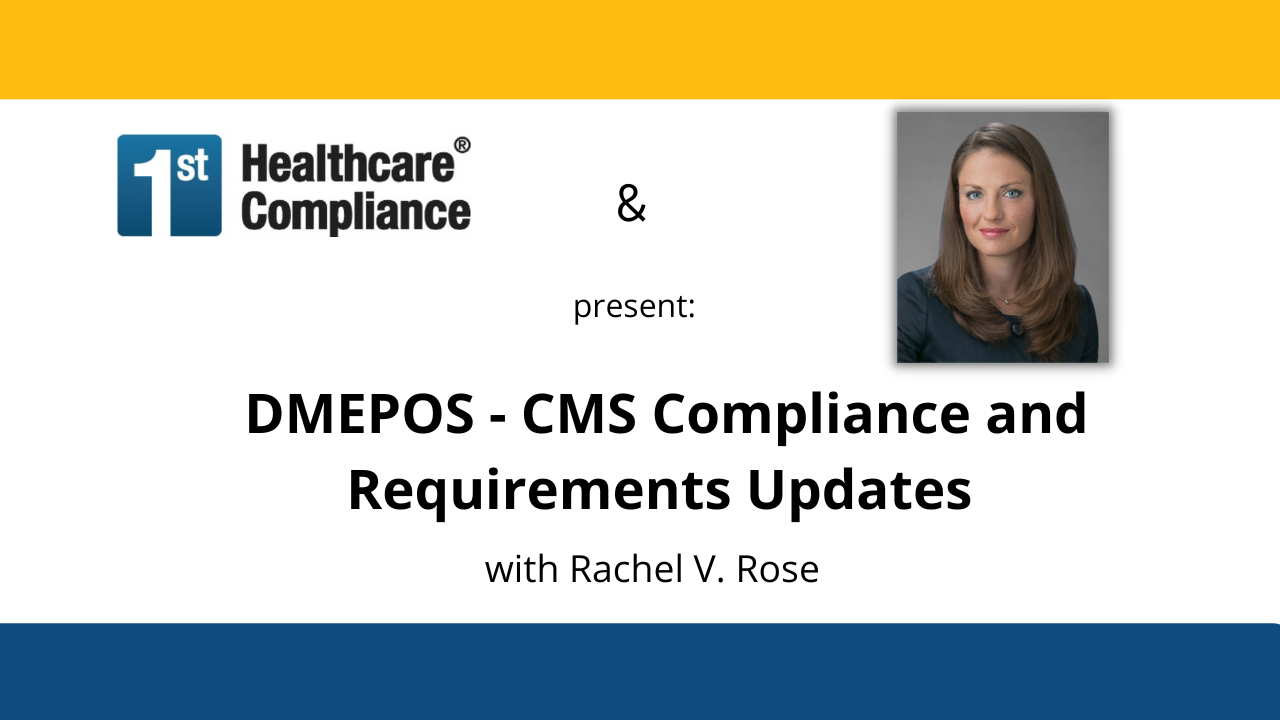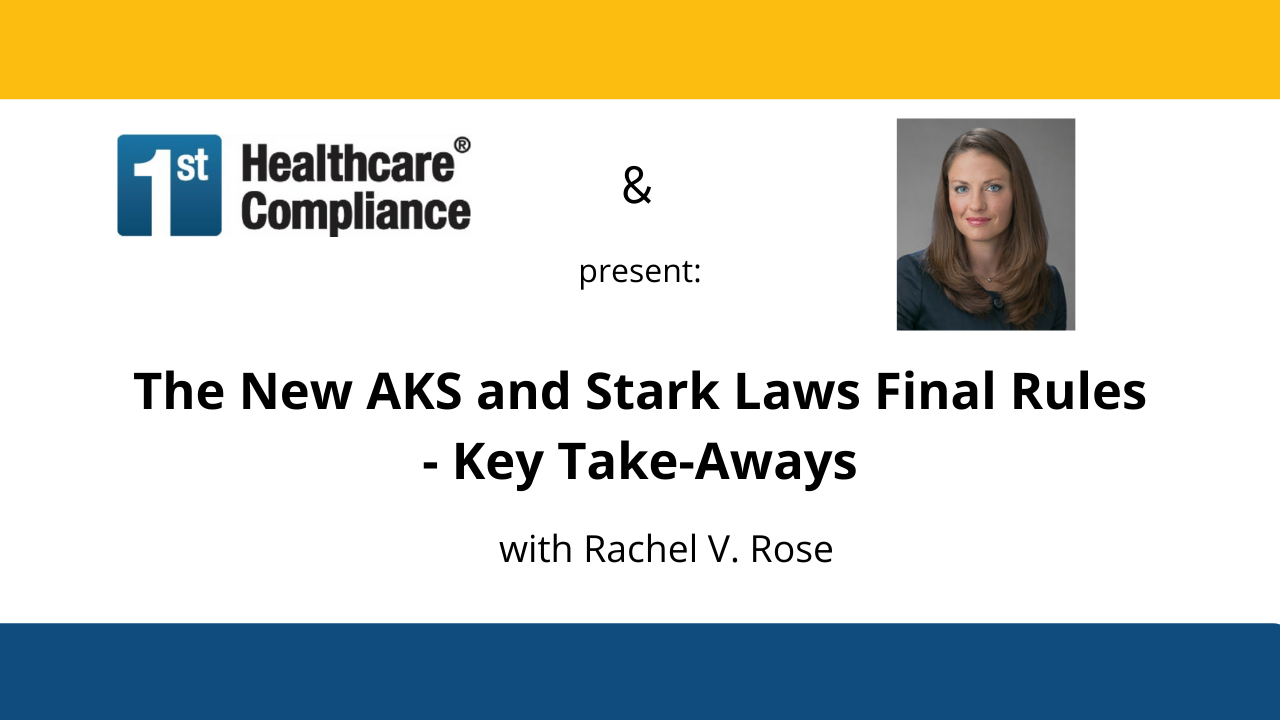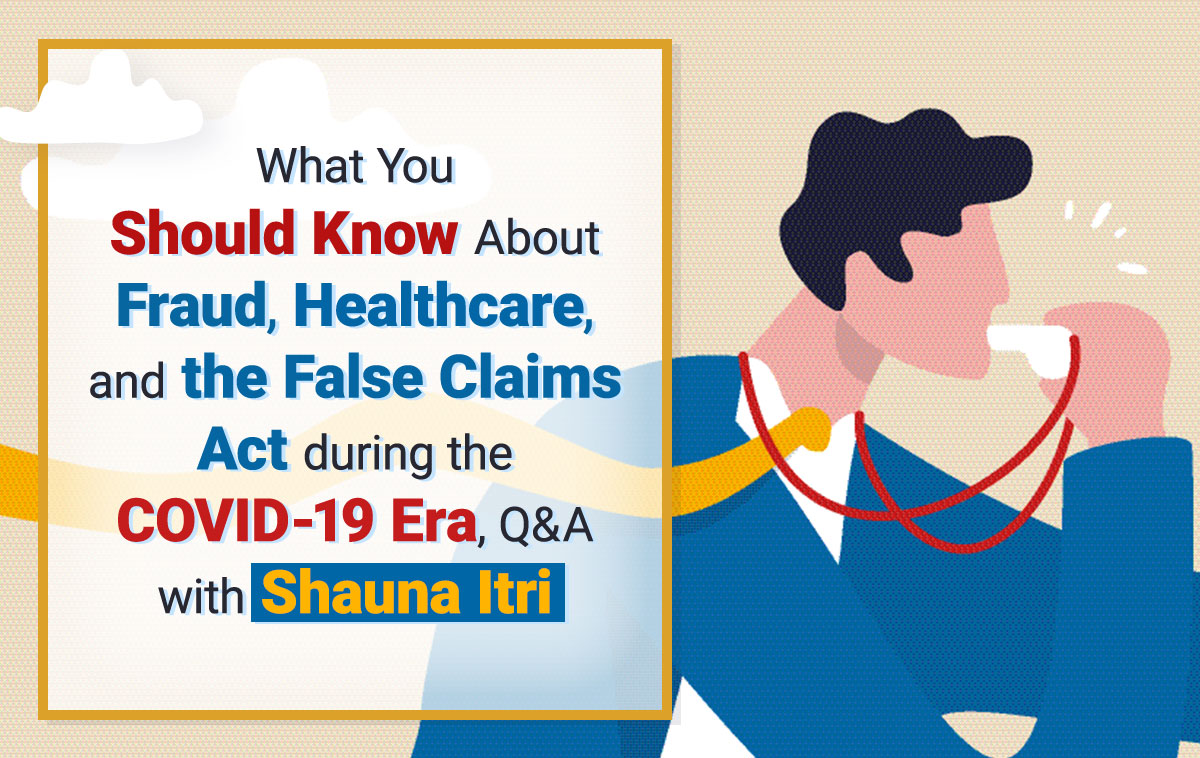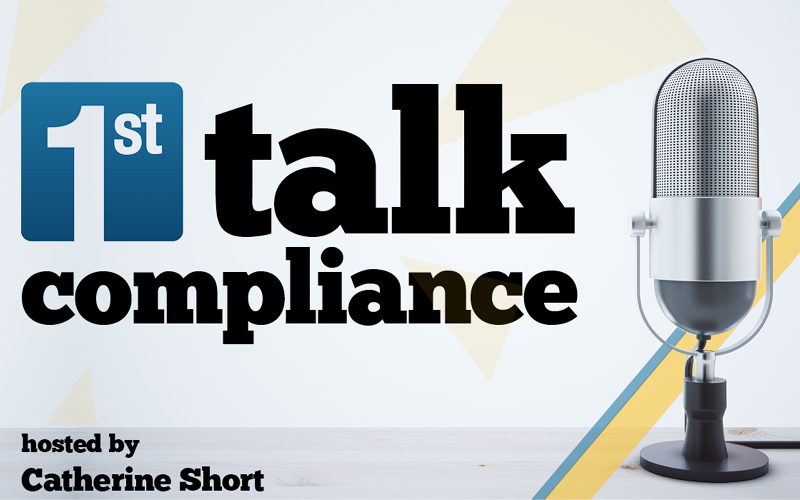Understanding Fraud and Abuse in Medicare
Fraud and abuse. Two words that are thrown around in the Medicare arena quite regularly. But what are fraud and abuse?
“Medicare fraud includes: knowingly submitting, or causing to be submitted, false claims or making representations of fact to obtain a Federal health care payment for which no entitlement would otherwise exists; knowingly soliciting, receiving, offering, and or paying remuneration to induce or reward referrals for items or services reimbursed by Federal health care programs; or making prohibited referrals for certain designated health services.”
Medicare abuse “describes practices that, either directly or indirectly, result in unnecessary costs to the Medicare program.” Examples include: “billing for unnecessary medical services; charging excessively for services or supplies; misusing codes on a claim, such as upcoding or unbundling codes.”
Some instances where fraud and abuse come into play are in violation of federal statutes. First up is the Federal False Claims Act or FCA. Allegedly, the purpose of the FCA is to protect the federal government from being overcharged or sold substandard goods or services.
 The next statute is one that everyone has probably heard of: the anti-kickback statute. The anti-kickback statute can be found at 42 U.S.C. § 1320a-7b. Essentially, it “prohibits the knowing and willful solicitation, offer, payment or acceptance of any remuneration (including any kickback, bribe, or rebate) directly or indirectly, overtly or covertly, in cash or kind: (1) for referring an individual for a service or item covered by a federal health care program, or (2) for purchasing, leasing, ordering, or arranging for or recommending the purchase, lease, or order of any good, facility, service or item reimbursable under a federal health care program.”
The next statute is one that everyone has probably heard of: the anti-kickback statute. The anti-kickback statute can be found at 42 U.S.C. § 1320a-7b. Essentially, it “prohibits the knowing and willful solicitation, offer, payment or acceptance of any remuneration (including any kickback, bribe, or rebate) directly or indirectly, overtly or covertly, in cash or kind: (1) for referring an individual for a service or item covered by a federal health care program, or (2) for purchasing, leasing, ordering, or arranging for or recommending the purchase, lease, or order of any good, facility, service or item reimbursable under a federal health care program.”
The Stark Law, officially “Limitation on Certain Physician Referrals” statute. provides that “if a physician (or an immediate family member of such physician) has a financial relationship with an entity specified in paragraph (2), then (A) the physician may not make a referral to the entity for the furnishing of designated health services for which payment otherwise may be made under this subchapter, and (B) the entity may not present or cause to be presented a claim under this subchapter or bill to any individual, third party payor, or other entity for designated health services furnished pursuant to a referral prohibited under subparagraph (A).”
In conclusion, fraud and abuse can be very costly for healthcare providers. The best way to avoid any penalties as a result of violations is to make sure you are in compliance with Federal laws. Once an accusation of fraud and abuse has been levied, it is very difficult to combat.
Contributed by Trey Scott, Esq.

